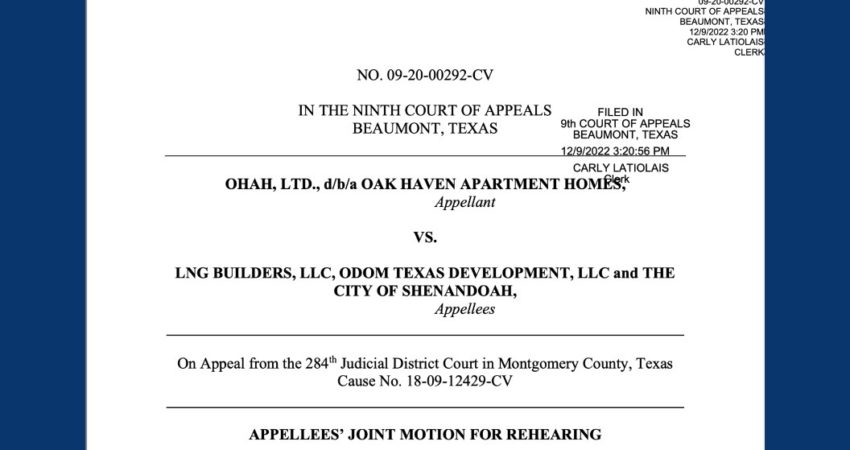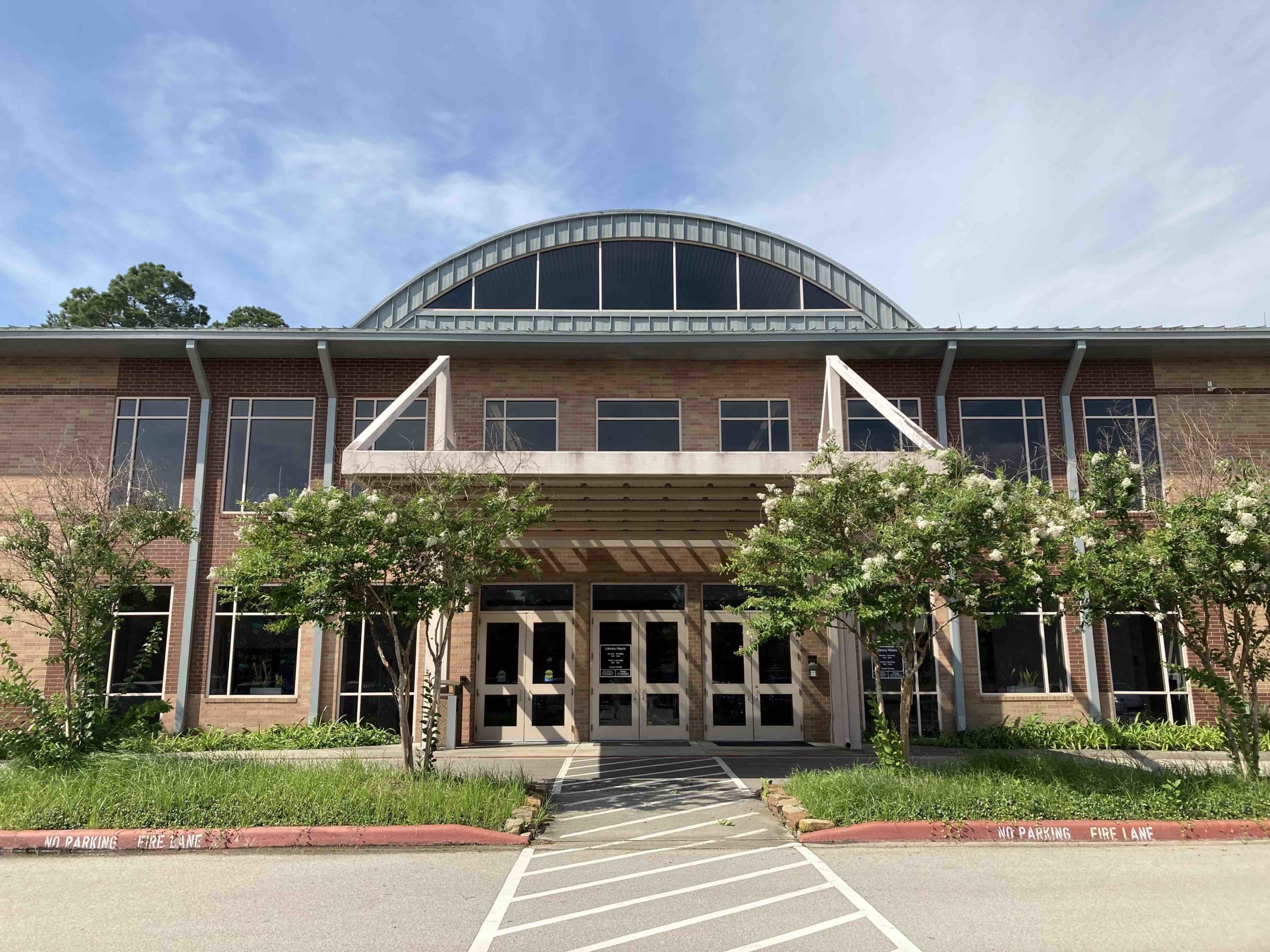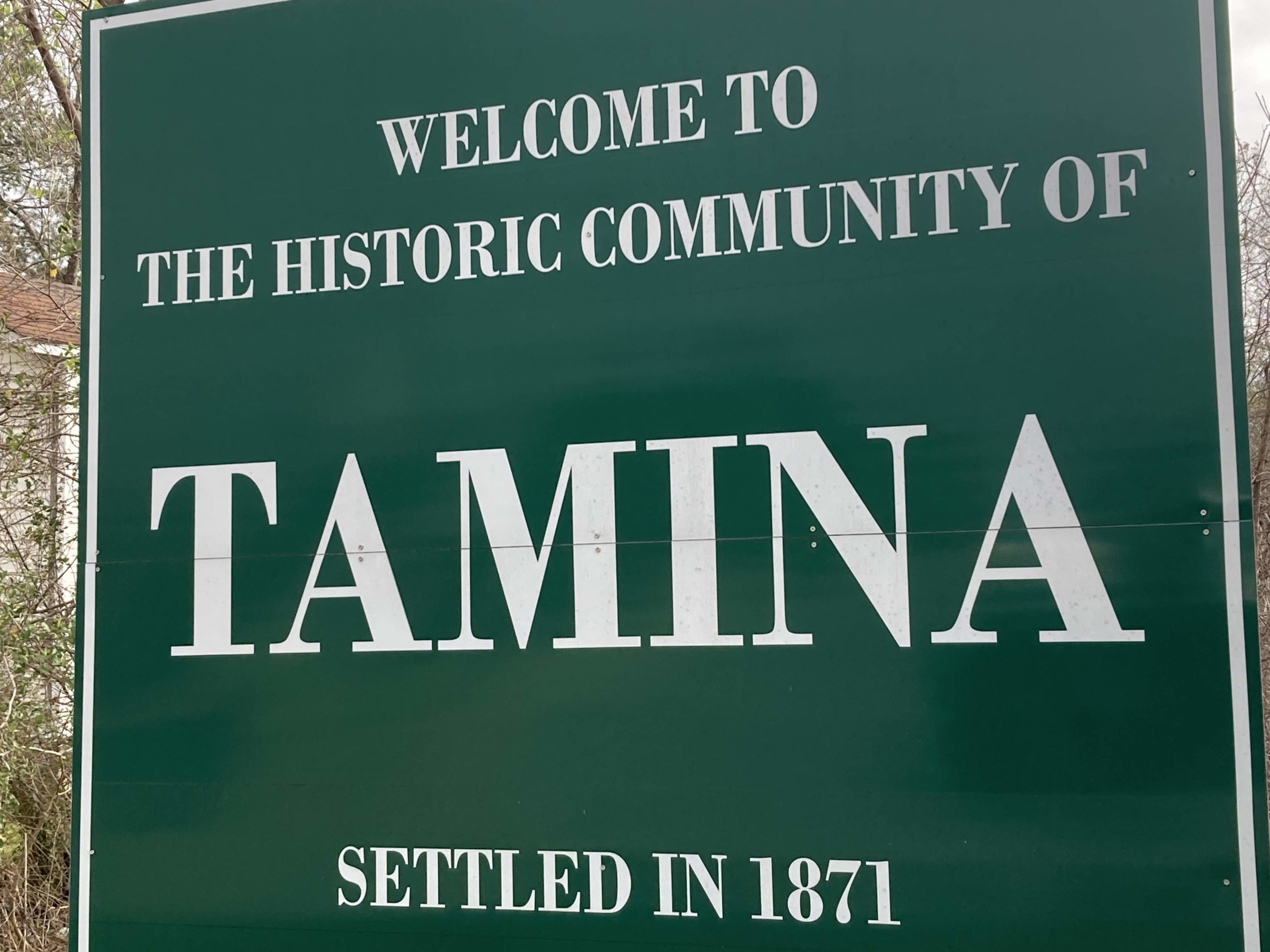The City of Shenandoah recently filed a joint motion (with two other parties) for rehearing in a case involving an easement dispute with Oak Haven Apartment Homes (OHAH). However, during the legal update to council on December 14, city attorney Bill Ferebee not only failed to mention the joint motion, he instead focused on two procedural rulings by the lower court which virtually have no bearing on the substantive aspects of the judgment issued by the 9th Court of Appeals. That judgment partially vacated, reversed and remanded a lower court’s ruling which favored the City and two other parties.
“Someone reported that the City lost the OHAH appeal. That is wrong…Because there were no active pleadings against the City, the court dismissed the City from the lawsuit,” Ferebee claimed, leaving the distinct impression that this litigation had been finally resolved in the city’s favor.
Meanwhile, only a few days prior to the council meeting, Ferebee signed a joint motion for rehearing with the appellate court, vigorously urging it to reverse its November 17 judgment. The motion asserts that the appeals court reached a wrong conclusion because its opinion “contains five fatal flaws,” one of which relates to the ownership of a drainage line installed in an easement on Oak Haven’s property. The city contends that the city alone owns the drainage line, not private parties.
The joint motion further predicts that if the appellate court ruling stands, there will be far reaching and negative consequences, such that “any property owner encumbered with a permitted drainage infrastructure installed on a dedicated public utility easement could bring suit against neighbors, contractors, and nearby property owners.…”
So, on the one hand when speaking to council, Ferebee highlights a favorable procedural ruling inconsequential to the overarching substantive issues. On the other hand, when addressing the court, he warns of potentially dire and broad repercussions if the court does not vacate its opinion and judgment.
Oak Haven filed a response to the rehearing request with a much narrower view of the court’s ruling, taking exception to the argument that there would be potentially wide ranging consequences from the court’s opinion. Oak Haven said the court’s ruling is “limited to the text of this unique plat” and noted the request for rehearing simply regurgitates points which the appeals court already rejected.
The Sentinel will report further developments in this case as they occur. Additional background of this story is here.
After Ferebee’s December 14 Oak Haven update, councilman Ted Fletcher asked about a report he read last July which supposedly claimed the City had lost a case and been ordered to pay opposing counsel’s attorney fees. Fletcher may have been referring to this Sentinel article, which states the City was ordered to pay court costs which are not the same as attorney fees.




